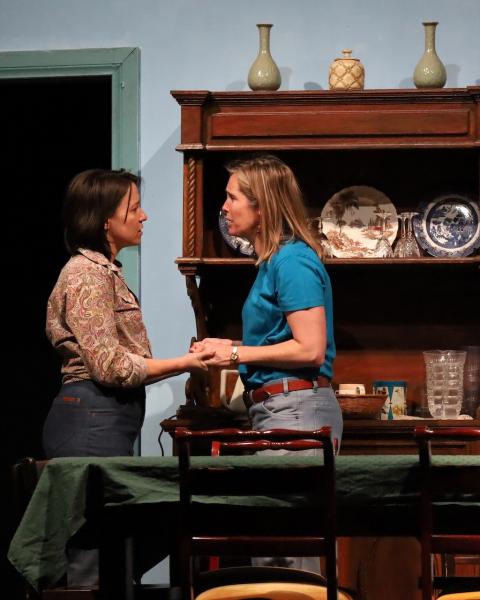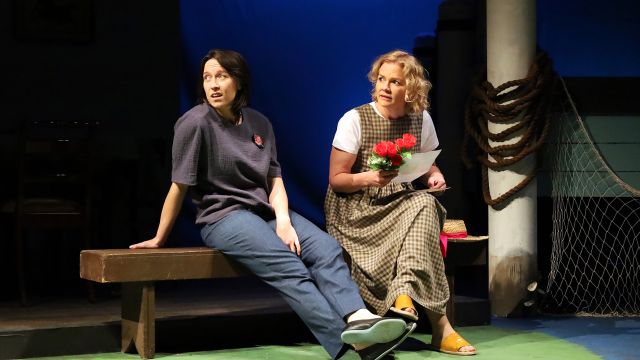Hotel Sorrento
A new production’s opening night is always abuzz with the climax of weeks and months of preparations with — usually — completion of a first “real” performance; if the audience loves the show, it’s icing on a cake that tastes good regardless.
Alexandra Pelvin’s directorial debut, with assistance by Antonia Kitzel, came with icing by the spoonful.
Hotel Sorrento, written in the 1980s, explores why we might run away or get away from the family home and why we might feel the need to return. Meg (Rachel Howard) has been in the U.K. in the ten years since leaving the family home in Sorrento, Victoria. Her sister Pippa (Jess Waterhouse) has been in New York for that period, with occasional visits home.
Their sister Hilary (Victoria Tyrrell Dixon) meanwhile has steadfastly remained, along with her son, Troy (Nick Dyball), to look after the sisters’ father, Wal (Saban Lloyd Berrell), following the death of their mother and then that of Hilary’s husband, Gary.
Pippa, visiting Sorrento, learns that Meg has had a novel — one evidently situated in Sorrento — nominated for a Booker prize and that Meg is imminently returning home for a visit. When Meg arrives, though she feels sure both sisters have read the novel, neither even mentions it. And it’s not due to indifference.
Hotel Sorrento treats many topics that remain relevant today (of which some will always be relevant): psychological and community defensiveness; conformity, conservatism, and cultural cringe; loyalty, truthfulness, and integrity; equality and egalitarianism; and such poignant touches as life purpose and a sense of home.

Any play of merit, if it is to transport us or at least suspend our disbelief, requires a certain delicacy in depicting a fictional character. The complex nuances of Hotel Sorrento intensify that requirement: what the characters don’t say has to come through louder than their words and obviously intentional gestures. Under poor direction, what should be a difficult untangling of ideas, memories, and beliefs could very easily shortchange author and audience in a series of premeditated exchanges of fire: loud and dramatic but ultimately uninteresting and uninformative.
So it was with great delight that I heard the characters’ ideas, memories, and beliefs unfolding apparently against their volition; heard genuine outrage quietly voiced; saw attitude expressed through posture and sometimes stillness. The most marvellous moment — there and gone again — occurred in a silent response by Hilary, a private facial expression when she was on the beach. But all of the acting was well controlled; much of it was masterful. And, astonishingly, although nobody shouted, nearly every word was clearly audible.
Backed up with perfect lighting and costumery and using an interesting side-by-side multiple-set design, the play, from planning to design and execution, was obviously in very capable hands. It deserves a long run. Get your tickets yesterday.
John P. Harvey
Images (top) L–R, Jess Waterhouse and Victoria Tyrrell-Dixon, and, (lower), L–R, Jess Waterhouse and Rachel Howard, in Hotel Sorrento. Photographer: Cathy Breen.
Subscribe to our E-Newsletter, buy our latest print edition or find a Performing Arts book at Book Nook.

